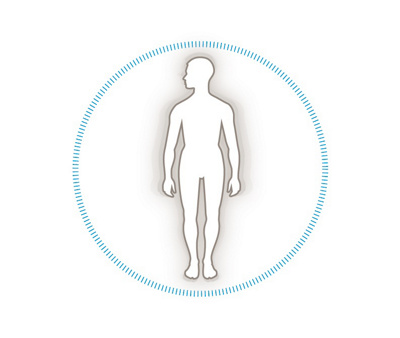Our check-ups give an overview of your health and reveal possible risks, and they are the best possible way to stay healthy in the future.
Would you like to discuss any medical problems with our specialists? Or would you like a comprehensive health check of your body based on the latest medical findings? We offer a wide range of preventive health check-ups for different needs and concerns. Hirslanden offers you its support as the largest private hospital group in Switzerland, with the knowledge and experience of highly specialised doctors.
Contact us for an obligation-free consultation. We will get back to you within 24 hours by phone or in writing. We bring in specialists and tailor the preventive health check-up to meet your needs. Depending on the request, we can provide a personalised check-up or an organ-specific preventive health check-up.
Why should you have a preventive health check-up at Hirslanden?
Why should you have a preventive health check-up at Hirslanden?
- The earlier health risks and potential illnesses are detected, the better they can be treated or even prevented
- It is possible to evaluate the risk of cardiac illnesses, stroke, kidney disease, diabetes and cancer
- Treatment by top specialists working in their area of specialty, on the basis of the latest medical findings
- Appointments are made quickly, with short waiting times
- Personally tailored check-up programmes
- Transfer, interpreters and hotels are organised by a personal case manager
Personalised check-ups
Personalised check-ups
Your personal health assessment begins with a detailed interview with a specialist in general internal medicine. They discuss your personal health status. You will be talking directly to an experienced specialist doctor, who will ask you about any previous illnesses and risk factors (for example, high consumption of nicotine or alcohol and persistent stress).
In any event, the individual health assessment will include the following:
- a physical examination
- an abdominal ultrasound
- a blood and urine test
- an ECG
As soon as the results are available, the doctor will discuss them with you, with reference to your previous illnesses and medical history , and will be happy to answer any questions you may have. When the process is finished, you will be sent a summary medical report. If the health assessment indicates that further examinations are advisable, you will receive expert advice on the issue.
In addition to the individual health assessment we will be happy to provide evaluations for a particular specialty or organ (for example, gastroenterology).
Cost: from CHF 3 400
Organ-specific preventive health check-ups
Organ-specific preventive health check-ups
If you would like a preventive evaluation of the health of a particular organ, or significant illnesses have previously occurred in your family (for example, bowel cancer), we recommend an organ-specific preventive health check-up. These preventive programmes are put together on a specialty-specific basis, and deal with an organ system (for example, the skin is covered by the specialty of dermatology).
This form of preventive health check-up begins with an interview with a specialist in the appropriate medical specialty. They discuss your personal health status with reference to previous illnesses in your family. Then there is an organ-specific examination (e.g. using ultrasound or laboratory analysis).
As soon as the results are available, the doctor will discuss them and the subsequent procedure with you, and will be happy to answer any questions you may have. When the process is finished, you will be sent a summary medical report. If this health assessment indicates that further examinations are advisable, you will receive expert advice on the issue. Your personal case manager is happy to help you organise the services that you want using Hirslanden's network of doctors.
An overview of the individual organ-specific preventive health check-ups is provided below, listed according to specialty. Click on a specialty to find out more:




